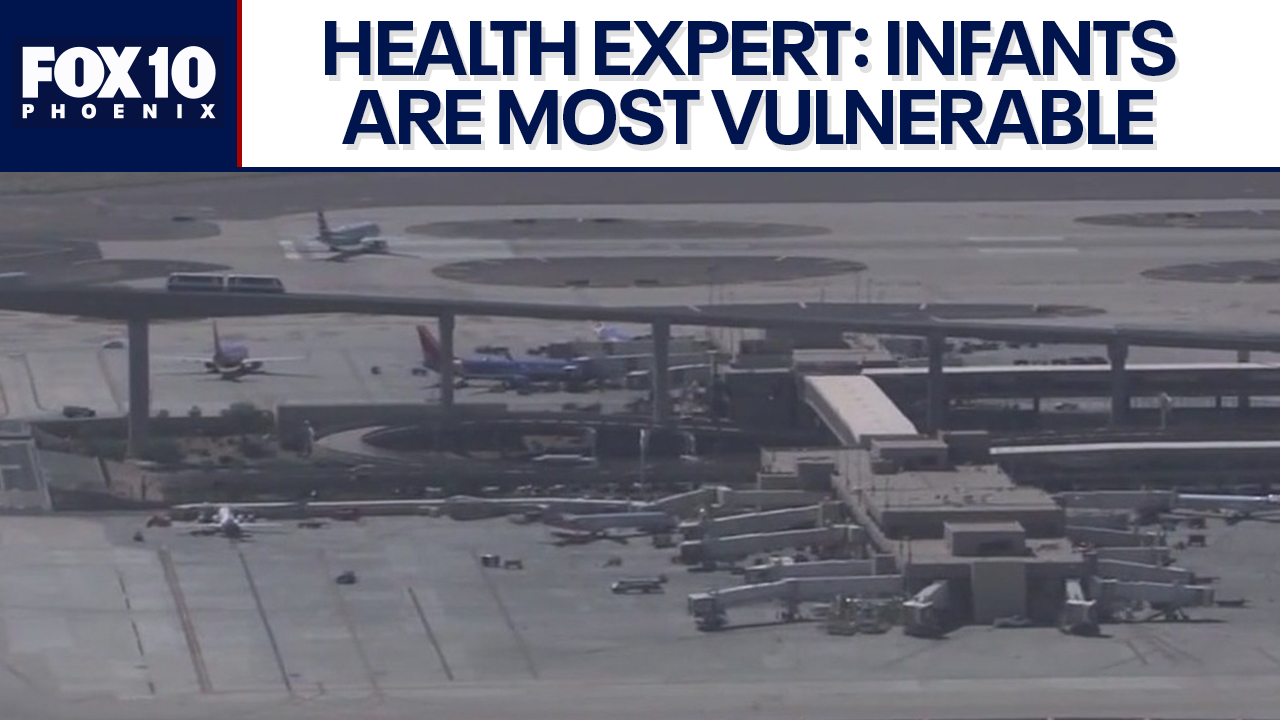Measles exposure confirmed at Phoenix Sky Harbor Airport
PHOENIX - Maricopa County health officials say a person who was infected with measles traveled through Phoenix Sky Harbor International Airport last week.
What we know:
The exposure happened on June 10 between 5 p.m. and midnight beyond security checkpoints on concourses C and D in Terminal 4.
"MCDPH is coordinating with other agencies to notify people who may have been exposed so they can watch for symptoms and get care if any develop," said Dr. Nick Staab of the Maricopa County Department of Public Health. "With a virus as highly infectious as measles, it’s a reminder that we all should stay up-to-date on our vaccines to keep ourselves and those around us safe."
Anyone who was on the same flight as the infected person should be contacted by the local health department, officials said.
Dig deeper:
Health officials say measles can linger in the air for up to two hours after an infected person leaves the area.
"Measles spreads by direct contact with an infected person or through the air when an infected person coughs or sneezes," MCDPH said. "A person with measles can give the disease to other people even before they feel sick. Measles can cause serious illness, especially in young children, pregnant women and people with depressed immune systems."
What are the symptoms of measles?
- Fever
- Red, watery eyes
- Cough
- Runny nose
- A red rash
If you develop any of these symptoms, officials say you should self-isolate and seek medical care.
"Measles is both highly contagious and preventable," Dr. Staab added. "It can cause severe illness, including death, so we strongly encourage anyone who has not been vaccinated to get vaccinated to prevent further spread."
What they're saying:
"Measles at Sky Harbor airport. Ask yourself, ‘Am I vaccinated?' If you are, good to go," Will Humble of the Arizona Public Health Association said. "If you were anywhere near that person, if you're unvaccinated, there's a decent chance that you're going to come down with it. The idea is really to prevent those folks from going out into public and then spreading it to other unvaccinated people."
The virus lingers in the air for up to two hours, and then becomes dormant. Humble warns that the most vulnerable are infants.
"My biggest fear would be if a family was in that concourse that evening with an infant, because babies don't get that first MMR shot until they're one," he explained. "There's no antibiotics for this. There's sometimes monoclonal antibodies and other kinds of things that can help if you get them on board really fast."
The backstory:
As of Friday, the Centers for Disease Control and Prevention confirmed 1,197 measles cases in the U.S. this year. States with active outbreaks, defined as three or more related cases, include Arizona, Colorado, Illinois, Kansas, Montana, New Mexico, North Dakota, and Oklahoma.
Measles, a highly contagious airborne virus, spreads easily through breathing, sneezing, or coughing. Though preventable by vaccine and considered eliminated in the U.S. since 2000, cases are frequently traced back to individuals infected abroad. The CDC reported in May that international measles introductions have more than doubled since last year, with most involving unvaccinated Americans returning home. In 2019, 1,274 cases nearly jeopardized the U.S.'s elimination status.
Navajo County, Arizona, has reported four measles cases, all linked to a single source and involving unvaccinated individuals with recent international travel history, according to the county health department on June 9.
The measles, mumps, and rubella (MMR) vaccine offers the best protection.
The CDC recommends the first dose for children aged 12 to 15 months, and the second between ages 4 and 6. High vaccination rates, above 95%, foster "herd immunity," making it difficult for measles to spread. However, childhood vaccination rates have declined nationwide since the pandemic, with more parents citing religious or personal exemptions.
What you can do:
For more information on measles, visit maricopa.gov/measles.


